Leading change
The need for sound governance has never been greater
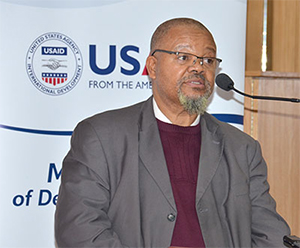
Prof Mandla Makhanya (Principal and Vice-Chancellor of Unisa).
“Without a doubt, 2017 is providing us with an endless supply of global, continental and national drama, intrigue and conflict – from Brexit, Trumpism, Russia, China, North Korea and Syria; and on our own Continent – reluctant or overly zealous regime change. The time and need for sound and transparent governance and for ethical leadership, has never been greater world-wide, and on our continent,” said Prof Mandla Makhanya, Principal and Vice-Chancellor of Unisa.
Speaking at the Management of Democratic Elections in Africa (MDEA) gala dinner on 9 June 2017, the Vice-Chancellor said this is why the programme is so important, especially when it comes to the critically important acceptance of properly management democratic elections. “We all know that this will only happen when there is trust in the transparency and ethics of the election process,” he said.
MDEA is hosted by Unisa through its Institute for African Renaissance Studies (IARS), in collaboration with the Independent Electoral Commission (IEC) of South Africa and USAID, who are sponsoring the certificate programme. “Unisa’s involvement in this programme speaks to it’s deep commitment to the democratic process, and the belief that as educators and proponents of sound and transparent democratic government and governance, we have a responsibility and an interest in ensuring that Africans are equipped to manage their democratic election processes towards ensuring free and fair elections. “This is proving to be more important than ever before,” explained the Vice-Chancellor.
Adding to this rich discussion was Prof Eddy Maloka, CEO of the African Peer Review Mechanism (APRM). This is a self-monitoring tool that is voluntarily agreed to by the New Partnership for Africa’s Development (NEPAD) member-states and the African Union (AU). This platform allows African countries to evaluate themselves on governance as a way of bringing Africa’s commitment to accountability and prosperity.
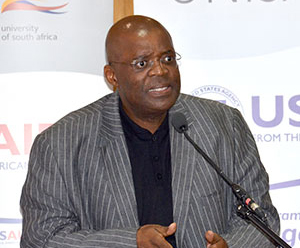
Prof Eddy Maloka (CEO of the African Peer Review Mechanism).
Elections just becomes a side issue
Maloka pointed out that there is a resource scarcity because the abundance of national resources on the African continent does not necessarily result in wealth and enrichment for countries. He said this is when actual elections just becomes a side issue. These are some of the issues they are trying to deal with in the APRM.
When it comes to serving the African continent, Maloka stands firm is his belief of citizens first. “This is a collective, we need a state, in fact any political movement needs a state to be able to implement programmes. It only becomes useful though if you have the state to better the lives of citizens. However, if the state is for self-serving interests, and are greedy and using it for their own personal wealth, then the state becomes a problem in Africa,” he said.
The MDEA programme is uniquely designed to strengthen and promote electoral democracy and develop knowledge and expertise in election management and administration through the provision of education and training programs for Election Management Bodies (EMBs). Since its inception in 2011, 365 officials have been trained and have benefited from generous funding by the USAID. In 2017 Unisa will train 90 Officials in the first and second intakes, in June and July, and 45 Commissioners will be trained in the third intake in September. 23 African countries and 24 Election Management Bodies have benefitted from training in the MDEA programme. The June 2017 intake welcomes the maiden participation of officials from the Federal Republic of Somalia and Burkina Faso.
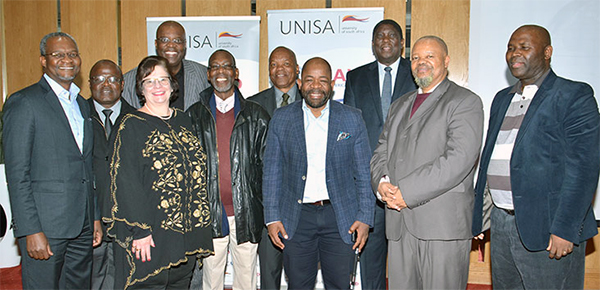
Pictured at the Management of Democratic Elections in Africa (MDEA) gala dinner on 9 June 2017: David Farirai (Director: Institutional Advancement, Unisa), Prof Eddie Maloka (CEO: African Peer Review Mechanism), Prof Michele Havenga (Executive Dean: College of Graduate Studies, Unisa), Prof Shadrack Gutto (Emeritus Professor: Institute for African Renaissance Studies, Unisa), Prof Lesiba Teffo (Director: School of Transdisciplinary Research Institutes, Unisa), Terry Tselane (Vice-Chairperson: Electoral Commission of South Africa), Dr Martin Rupiya (Institute for African Renaissance Studies, Unisa), Prof Mandla Makhanya (Principal and Vice-Chancellor, Unisa) and Dr Somadoda Fikeni (Advisor to the Principal and Vice-Chancellor/Acting Executive Director: Department of Marketing and Communication, Unisa).
*By Kirosha Naicker
Voting image source: http://amsa.com.au
Publish date: 2017-06-13 00:00:00.0


 Unisa honours Dr OK Matsepe's enduring legacy
Unisa honours Dr OK Matsepe's enduring legacy
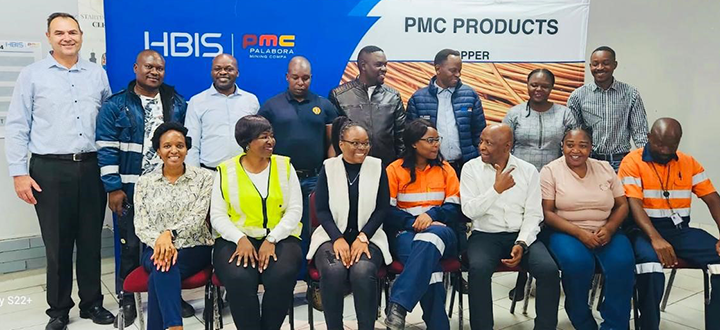 Great strides towards concretising Unisa-PMC partnership
Great strides towards concretising Unisa-PMC partnership
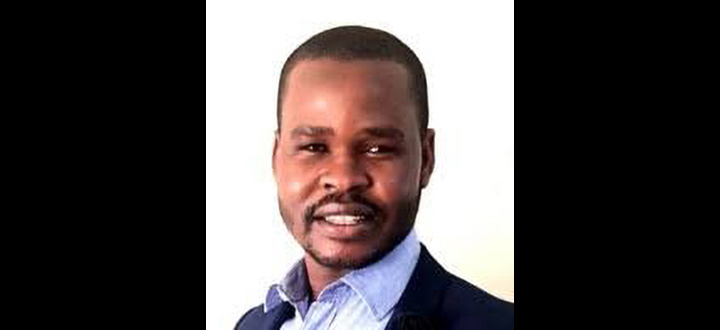 Mental health among men in the workplace needs more attention
Mental health among men in the workplace needs more attention
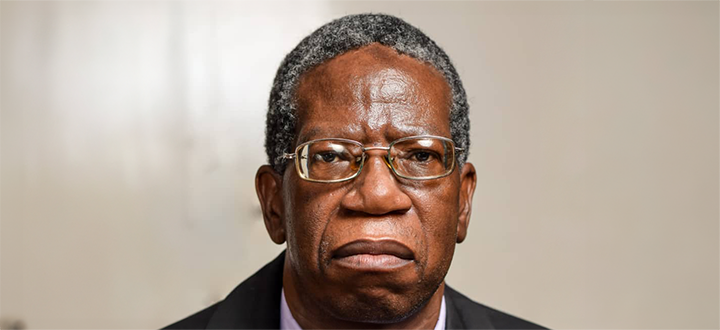 "I owe everything to Unisa and my late supervisor's priceless mentoring"
"I owe everything to Unisa and my late supervisor's priceless mentoring"
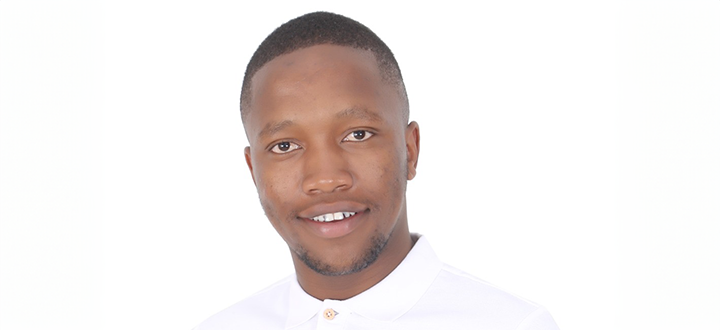 Majikijela - a queer scholar raising homosexuality awareness through his work
Majikijela - a queer scholar raising homosexuality awareness through his work